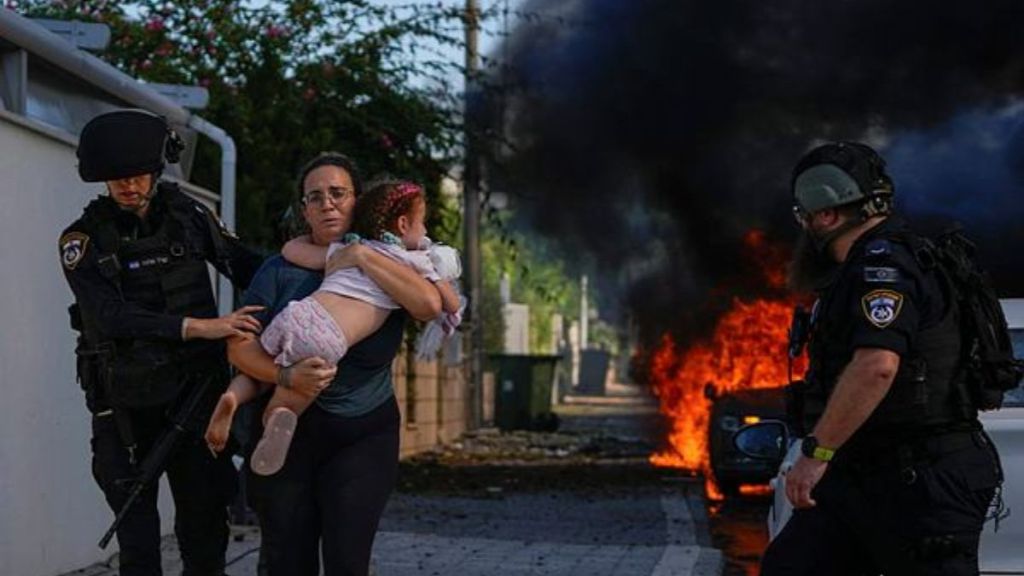Dr Sreshtha Chakraborty
Hamas’ surprise attack on Israel after 50 years since the start of the 1973 War is no coincidence. On the morning of 7 October, Hamas carried out a surprise attack on an unprecedented scale, firing thousands of rockets, infiltrating Israeli territory, and taking in hostages. The lack of preparedness will be remembered as an intelligence failure for the ages. Israeli Prime Minister Netanyahu has declared that his country is “at war” and the Israeli Defence Force has launched Operation “Iron Sword”. Hamas Commander Mohammed Deif called it AI Aqsa Storm and claimed that the operations were in opposition to the systematic desecration of the Al Aqsa Mosque and the crime of occupation.
Israel and Hamas are now locked in an escalation of violence initiated by Hamas involving aerial sea and ground operations and responded by Israel with a deadly bombardment of the blockaded coastal enclave. But the question remains why did Hamas launch such a massive incursion into Israel knowing that the result would be disproportionate? This could be a reminder that the conflict between Israel and the Palestinians is far from being resolved. Palestinians strongly believe that their situation has worsened under the right-wing Israeli government. Another speculation would be that the attack is carried out keeping in mind the long-term efforts that the Israeli government has been making to build on the Abraham Accord and normalize its relations with Saudi Arabia. The attack is an attempt to shift the narrative away from the perceived recent progress made to normalize the ties between Saudis and Israelis.
The surprise attack on Israel only marks the beginning of a new conflict in world politics and it occurred 50 years after what Israelis call the Yom Kippur War and Palestinians call the October War will keep holding reference in our history book. For years both Israel and Hamas have engaged in rounds of attacks and counter attacks but most immediately the biggest concern for Israel will be to protect the Israeli citizens under siege by Hamas and to prevent Hezbollah from joining the conflict. The biggest challenge at this moment for Israel would be to restore deterrence in a morally acceptable way yet so strongly that the price paid for that would be too high. But what is clear is the response from Israel in Gaza will be sweeping and the efforts to gather the political and economic community for the Palestinian cause will again be at risk with Hamas’ action.
It is too early to decide on the outcome of the conflict and to provide a definite conclusion but this has marked another intense chapter in the longstanding conflict in the Israel-Palestine saga adding complexities to the already intricate situation. International communities have mostly reacted with their strategic partnerships in mind including the US, UK, France, Germany strongly backing Israel, and regional players like Iran, and Lebanon have come in full support of Hamas whereas Turkey and Egypt have measured their reaction.
The author holds PhD in International Politics from Jawaharlal Nehru University and presently working as an Assistant Professor in Amity University Noida.
Disclaimer: Views expressed are personal and do not reflect the official position or policy of Financial Express Online. Reproducing this content without permission is prohibited.


